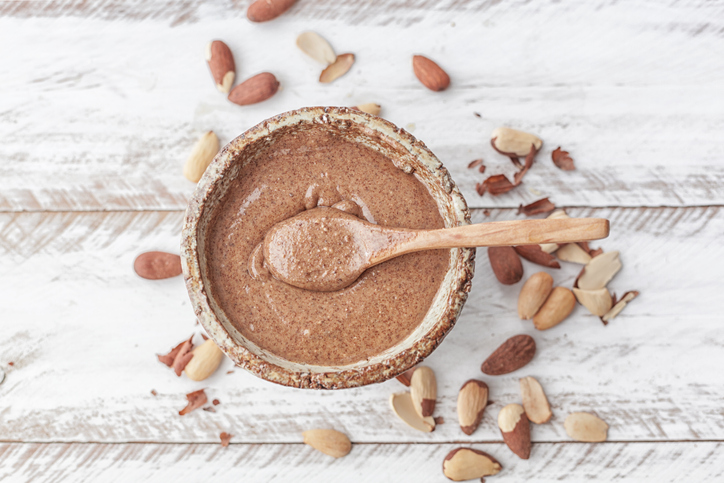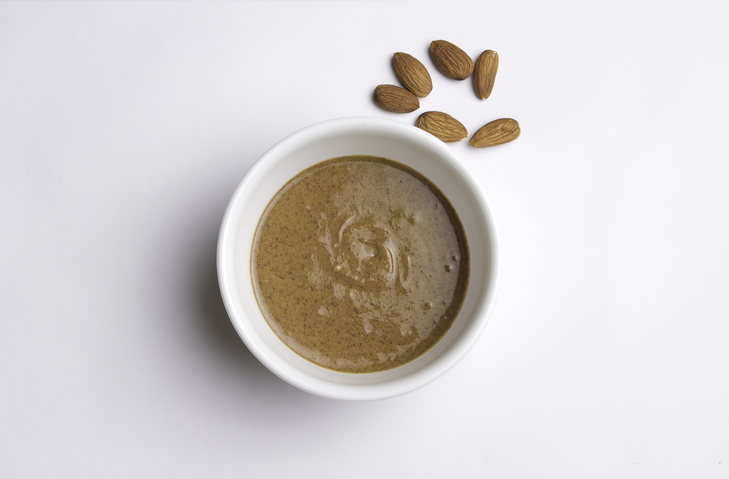There’s A Whole World of Nut Butters You May Want To Get Familiar With

By Joy Stephenson-Laws, J.D., Founder
Here’s a fun fact for you.
Several sources report that former president Bill Clinton said his favorite sandwich is peanut butter and banana. And apparently, “King of Rock and Roll” Elvis Presley said the same!
I am also a fan of peanut butter. But if you go to the “peanut butter aisle” at your grocery store, you will notice there is an entire world of nut butters: almond, cashew, macadamia, walnut, Brazil nut, hazelnut and more.
These butters are all great for a healthy snack. They are rich in healthy fats, protein and other essential nutrients.
“People who regularly eat nuts or nut butters have a lower risk of heart disease or Type 2 diabetes than those who do not include them in their diet,” according to a recent report.
“Some nuts, like walnuts, are high in polyunsaturated fatty acids, which are heart-healthy fats and might play a role in lowering triglycerides, a type of fat found in the blood.”

So many people think fiber is only important for having regular bowel movements. But there is much more to fiber than this. Fiber is a critical component of an overall healthy diet. We’ve discussed how fiber may help with knee pain and even help people who have already been diagnosed with colorectal cancer.
Vitamin E is a powerful antioxidant that may help protect your immune system and help fight inflammation.
Magnesium is one of the critical nutrients we need to stay healthy. This mineral is an important cofactor for hundreds of processes and reactions in the body, including energy. It is important in sugar breakdown and use, blood pressure regulation and muscle and nerve function, including function of the heart muscle. There is even evidence that magnesium improves the symptoms associated with depression. It may even help you get better sleep.
This essential mineral is not only important for strong bones and healthy teeth. Adequate calcium may decrease your risk for colorectal cancer. Recent studies confirm that high calcium intake is associated with a lower risk of colorectal cancer among both men and women.
The benefits of omega-3 fatty acids include a reduced risk for heart attack and stroke, increased protection against Alzheimer’s disease, assisting in healthy neurological and eye development for fetuses and newborns, lower cholesterol and improvement in symptoms of rheumatoid arthritis.
You can read all about these nutrients in the link above.
This mineral is great for the immune system and may even help with pain management.
This mineral helps prevent anemia and may even help with cognitive skills.
Choose your nut butter wisely.Although nut butters are delicious and full of great nutrients, steer clear of the processed ones and the ones that have a lot of added sugar. You really want to look at nutrition labels when selecting a nut butter. I recently bought an organic almond butter that only has one ingredient - almonds!
Eat in moderation.
Nut butters are high in fat. Good fat, but still fat. Eat in moderation and pair with healthy foods such as apples, pears, bananas and whole grain breads. You can also put a little bit of nut butter in your oatmeal, smoothie or yogurt.
If you have a nut allergy, speak with a competent healthcare professional.
Some people with peanut allergies are able to consume other nut butters. However, again, if you have any food allergies, it is always best to speak with a competent healthcare professional about which foods are safe to include in your diet.
Enjoy your healthy life!
Disclaimer: This article is not intended to provide medical advice. Please consult with your doctor or another competent healthcare practitioner to get specific medical advice for your situation.
The pH professional health care team includes recognized experts from a variety of health care and related disciplines, including physicians, attorneys, nutritionists, nurses and certified fitness instructors. This team also includes the members of the pH Medical Advisory Board, which constantly monitors all pH programs, products and services. To learn more about the pH Medical Advisory Board, click here.







